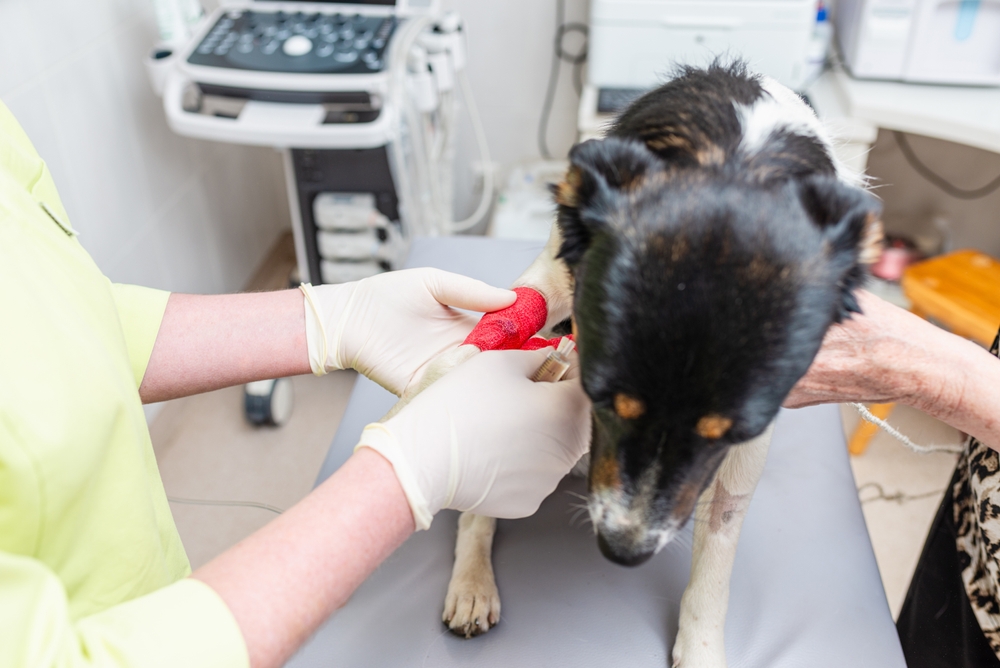Source: AAHA The article outlines the contributors and framework behind the 2026 AAHA Oncology Guidelines for Dogs and Cats. Developed by a multidisciplinary task force convened by the American Animal Hospital Association, the guidelines draw on expertise from Veterinary oncologists, surgeons, radiologists, feline practitioners, and academic leaders across the United States. Jaci Christensen and Kim Johnson serve as cochairs […]
read more
Editor
Recent Posts
Honey, Garlic, and High-Tech: New Ways to Fight Bacteria in Horses
by Editor | Jan 11, 2026 | Equine, News
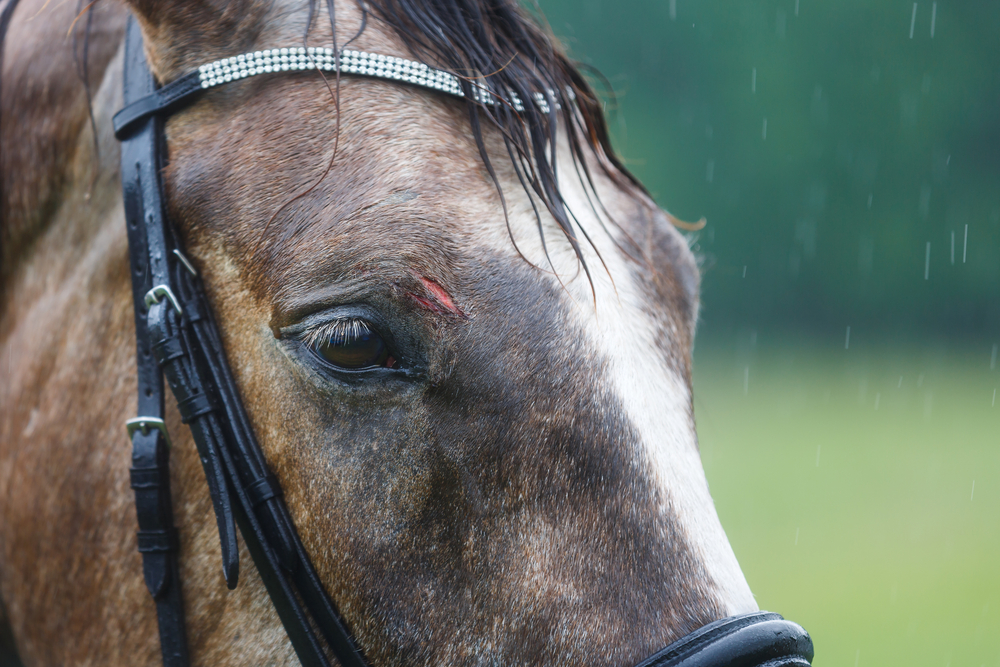
Source: The Horse Researchers are exploring natural and high-tech alternatives to antibiotics in horses to combat rising antimicrobial resistance and protect global health. While antibiotics remain lifesaving, their overuse can disrupt the microbiome and drive resistant bacteria. Because wounds are easily accessible, many alternatives target local infections. Studies show that medical-grade honey, garlic, ginger, and […]
read moreOSU Agriculture Launches Animal Excellence Initiative to Improve Livestock Health
by Editor | Jan 10, 2026 | Animal Health News, Livestock

Source: Pork Business Oklahoma State University has launched the OSU Agriculture Animal Excellence initiative to strengthen teaching, research, and Extension programs that improve livestock health and sustainability. Central to the effort is the new Beef Center of Excellence, a cross-disciplinary hub uniting experts across the beef supply chain to drive innovation, profitability, and sustainable production. Supported by an advisory […]
read moreWhat Tyson Beef Plant Closure Means for Cattle Producers
by Editor | Jan 10, 2026 | Agriculture, Livestock
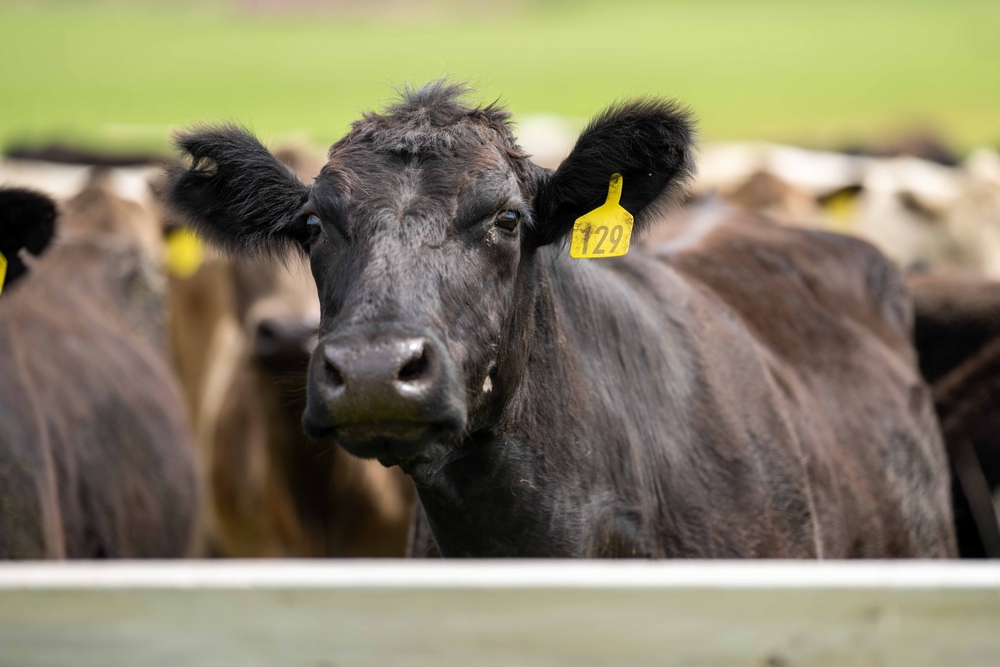
Source: Feedstuffs Tyson Foods’ permanent closure of its Lexington, Nebraska, beef plant marks a structural shift in the U.S. beef packing industry rather than a temporary disruption. The plant, which processes nearly 5,000 cattle per day, is closing amid historically tight cattle supplies, high cattle prices, and low plant capacity utilization. Markets reacted sharply, with cattle futures […]
read moreA New Method for Stopping Osteosarcoma from Spreading to the Lungs
by Editor | Jan 9, 2026 | Animal Health Industry, News
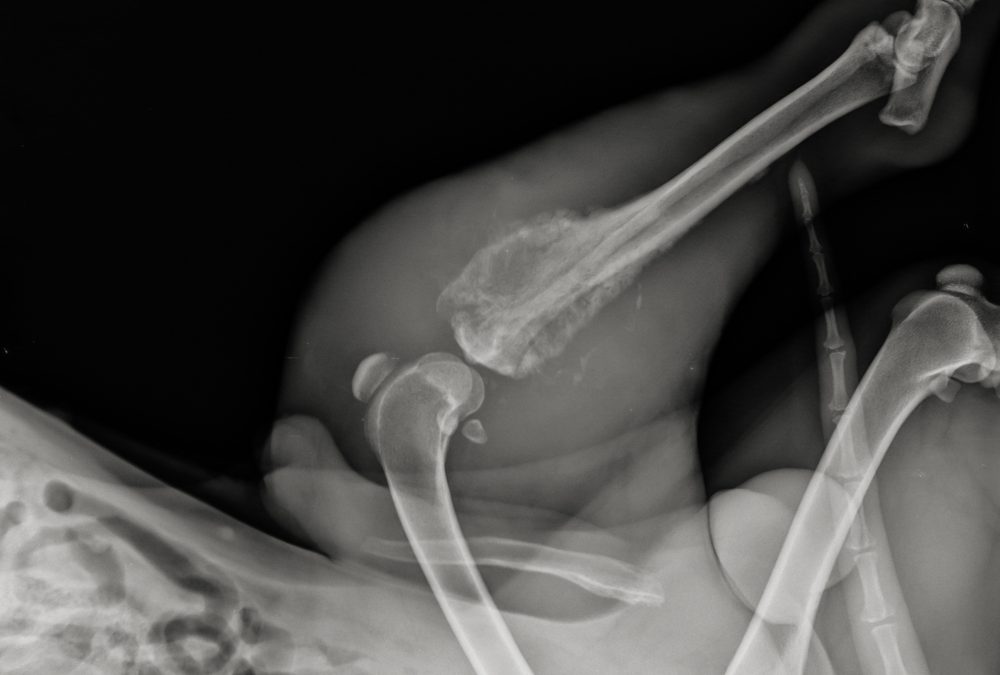
Source: University of Colorado Anschutz Researchers at the University of Colorado Cancer Center are investigating a new strategy to prevent osteosarcoma from spreading to the lungs, the most common and deadly site of metastasis. Veterinary oncologist Dan Regan, DVM, has received a long-term NIH R37 MERIT Award to study a novel drug combination targeting the lung “metastatic niche.” Working with medical oncologist Breelyn […]
read moreCanada and the United Kingdom Agree to Work Together to Improve Regulatory Efficiency for Animal Vaccines
by Editor | Jan 9, 2026 | Animal Health Industry

Source: Canadian Food Inspection Agency Canada and the United Kingdom have signed a Memorandum of Understanding (MOU) to improve regulatory efficiency for Veterinary biologics, including animal vaccines. The agreement was announced jointly by the Canadian Food Inspection Agency (CFIA) and the UK’s Veterinary Medicines Directorate (VMD). It aims to strengthen collaboration in the oversight and approval of animal vaccines, recognizing their importance to […]
read moreAKC Canine Health Foundation Announces Dr. Lisa Freeman as Recipient of Inaugural Canine Health Discovery of the Year Award
by Editor | Jan 8, 2026 | Companion Animal, News

Source: GlobeNewswire The AKC Canine Health Foundation announced Dr. Lisa Freeman of the Cummings School of Veterinary Medicine at Tufts University as the recipient of the inaugural 2025 Canine Health Discovery of the Year Award. A Veterinary nutritionist and professor, Dr. Freeman was honored for her groundbreaking research into diet-associated dilated cardiomyopathy (DCM), a serious and often fatal heart disease affecting […]
read moreSource: Thoroughbred Daily News Colorado will introduce a new Veterinary workforce role, Veterinary professional associates (VPAs), when House Bill 25-1285 takes effect on January 1, 2026. The law follows voter approval of Proposition 129 in November 2024 and formally establishes VPAs within the state’s Veterinary system. Under the legislation, VPAs may practice Veterinary medicine only under the supervision of a licensed veterinarian, […]
read moreColorado to Introduce Veterinary Professional Associates Under New Law
by Editor | Jan 7, 2026 | Animal Health Industry, News

Source: KJCT 8 Colorado will introduce a new Veterinary workforce role, Veterinary professional associates (VPAs), when House Bill 25-1285 takes effect on January 1, 2026. The law follows voter approval of Proposition 129 in November 2024 and formally establishes VPAs within the state’s Veterinary system. Under the legislation, VPAs may practice Veterinary medicine only under the supervision of a licensed veterinarian, with […]
read moreCDC Issues Rabies Travel Alert for These 2 Countries—Here’s What Travelers Should Know
by Editor | Jan 7, 2026 | Companion Animal, News

Source: DVM 360 Dechra announced FDA approval of Emeprev, a maropitant citrate injectable solution for the prevention and treatment of vomiting in dogs and cats. With this approval, Dechra becomes the first to offer an FDA-approved bioequivalent injectable alternative to the most widely used Veterinary antiemetic. Emeprev is approved for acute vomiting in dogs and for vomiting […]
read moreFDA Approves Maropitant Citrate Injectable Solution
by Editor | Jan 6, 2026 | Animal Health Industry

Source: DVM 360 Dechra announced FDA approval of Emeprev, a maropitant citrate injectable solution for the prevention and treatment of vomiting in dogs and cats. With this approval, Dechra becomes the first to offer an FDA-approved bioequivalent injectable alternative to the most widely used Veterinary antiemetic. Emeprev is approved for acute vomiting in dogs and for vomiting […]
read moreNew Guidelines Call For Earlier Diagnosis, Intervention in Feline Dental Disease
by Editor | Jan 6, 2026 | Companion Animal, News

Source: DVM 360 Dechra announced FDA approval of Emeprev, a maropitant citrate injectable solution for the prevention and treatment of vomiting in dogs and cats. With this approval, Dechra becomes the first to offer an FDA-approved bioequivalent injectable alternative to the most widely used Veterinary antiemetic. Emeprev is approved for acute vomiting in dogs and for vomiting […]
read moreFDA Conditionally Approves Merck Animal Health’s EXZOLT™ CATTLE-CA1 for the Prevention and Treatment of New World Screwworm (Cochliomyia hominivorax) Larvae (myiasis)
by Editor | Jan 5, 2026 | Animal Health Industry

Source: Merck Animal Health Merck Animal Health announced that the U.S. Food and Drug Administration has granted conditional approval for EXZOLT™ CATTLE-CA1, a first-in-class topical parasiticide for cattle. The product, containing fluralaner, is the only conditionally approved treatment for both the prevention and treatment of New World screwworm (Cochliomyia hominivorax) larvae and for the treatment and control of cattle fever […]
read moreUC Davis Adopts ScribbleVet for Veterinary Facilities, Students
by Editor | Jan 5, 2026 | Animal Health Industry, News

Source: UC Davis School of Veterinary Medicine UC Davis School of Veterinary Medicine has adopted ScribbleVet, an AI-powered Veterinary scribe, for use across its clinical facilities, integrating the technology into both patient care and Veterinary education. Chosen for its accuracy, ease of use, and efficiency, ScribbleVet streamlines medical documentation by automatically generating SOAP notes during recorded appointments, […]
read more2025 Transportation of Cats in Motor Vehicles Position Statement
by Editor | Jan 4, 2026 | Companion Animal, News
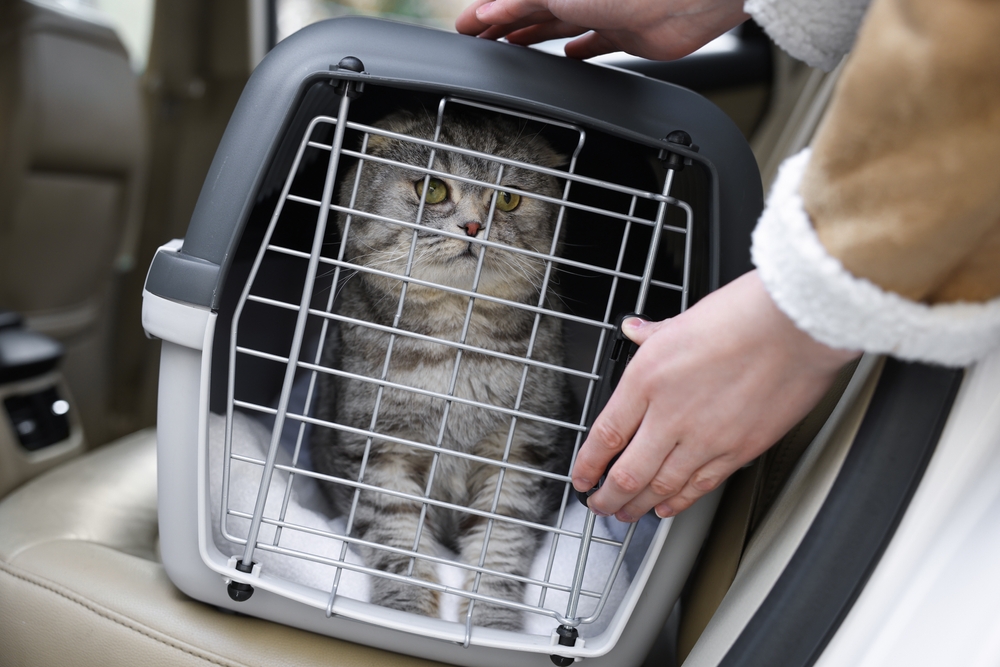
Source: Feline VMA The 2025 Transportation of Cats in Motor Vehicles Position Statement from the Feline Veterinary Medical Association (FelineVMA) emphasizes the importance of safe transport and reducing stress for cats during car travel. Veterinary visits are the most common reason cats leave their homes, yet transport-related stress and negative clinic experiences are major factors preventing caregivers from seeking […]
read moreWynwood Dog Food Co. to Expand Production With New Miami Factory, Eyes National Growth
by Editor | Jan 4, 2026 | Companion Animal, News

Source: Pets Plus Magazine Wynwood Dog Food Co. announced plans to open a new 13,000-square-foot production facility in Miami’s Allapattah neighborhood, marking a major step toward national expansion. Set to open in early 2027, the factory will significantly increase production capacity from the company’s current 3,000-square-foot site, enabling up to $30 million in annual fresh food output. […]
read moreElanco Announces Full USDA Approval of CPMA (Now Trutect™) the First-and-Only Treatment for Deadly Canine Parvovirus
by Editor | Jan 3, 2026 | Animal Health Industry

Source: Elanco Elanco Animal Health announced full USDA approval of its Canine Parvovirus Monoclonal Antibody (CPMA), now branded as Trutect™, the first and only approved treatment for deadly canine parvovirus. Initially conditionally approved in May 2023, the treatment has already helped save thousands of puppies nationwide. Real-world data show a 93% survival rate among treated puppies, shorter hospital stays by […]
read moreFDA Approves Maropitant Citrate Injectable Solution
by Editor | Jan 3, 2026 | Animal Health Industry, News

Source: DVM 360 U.S. Food and Drug Administration has approved Emeprev, a maropitant citrate injectable solution from Dechra, for the prevention and treatment of vomiting in dogs and cats. Emeprev is the first FDA-approved bioequivalent injectable alternative to the most widely used veterinary antiemetic, offering comparable efficacy with a different preservative. Unlike the pioneer product, Emeprev contains benzyl […]
read moreSource: Pet Food Industry RAWZ Natural Pet Food has donated 3,146 cases of canned cat food (more than 25,900 pounds valued at over $240,000) to support animal shelters in Oklahoma. The donation was made through a partnership with Greater Good Charities, which distributed the food to Two Legs Four Paws, an organization that assists more than 60 animal […]
read morePurina Foundation Awards Over $1 Million to Nonprofits
by Editor | Jan 2, 2026 | Companion Animal, News

Source: Pet Food Industry The Purina Foundation awarded $1.165 million in grants to 27 nonprofit organizations across the United States in 2025, continuing its long-standing mission to support pets, people and communities. Founded in 1951 by William H. Danforth, the foundation prioritizes strengthening the human–animal bond in the 25 U.S. cities where Nestlé Purina PetCare operates. In 2025, major funding focused on […]
read moreContributors
Archives
- February 2026
- January 2026
- December 2025
- November 2025
- October 2025
- September 2025
- August 2025
- July 2025
- June 2025
- May 2025
- April 2025
- March 2025
- February 2025
- January 2025
- December 2024
- November 2024
- October 2024
- September 2024
- August 2024
- July 2024
- June 2024
- May 2024
- April 2024
- March 2024
- February 2024
- January 2024
- December 2023
- November 2023
- October 2023
- September 2023
- August 2023

